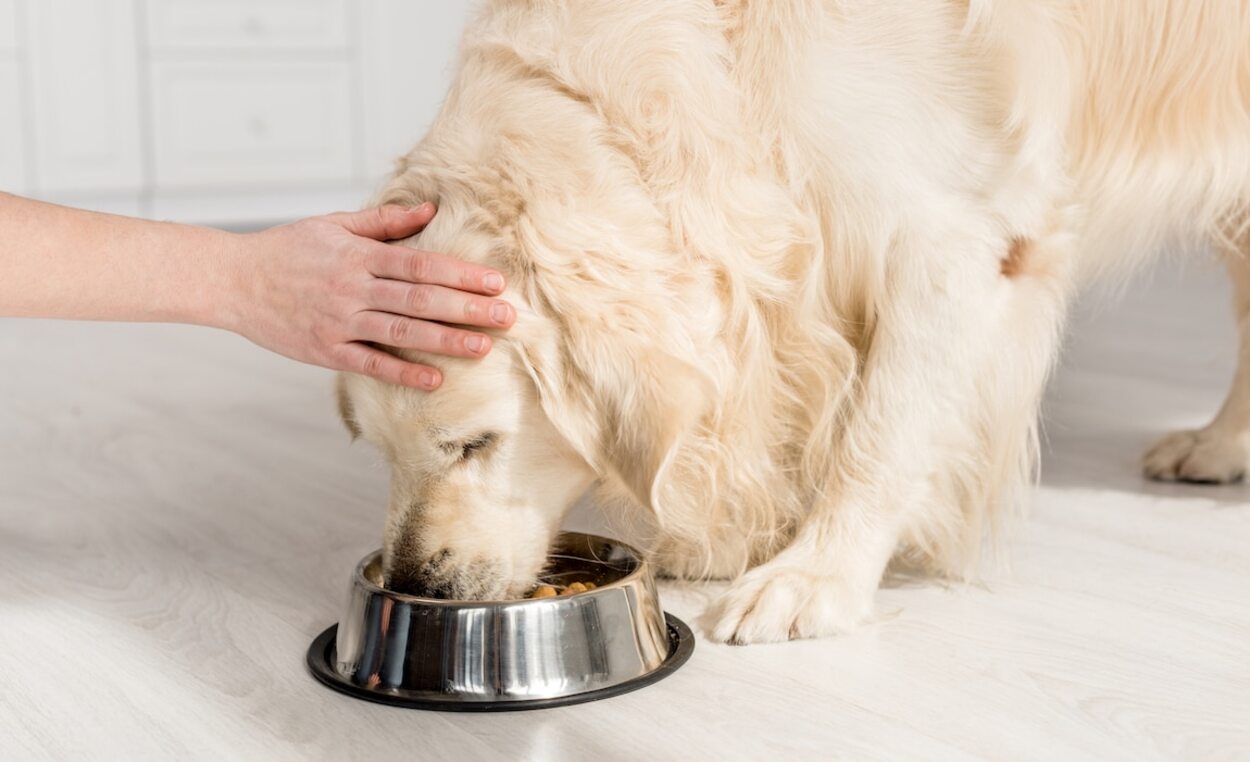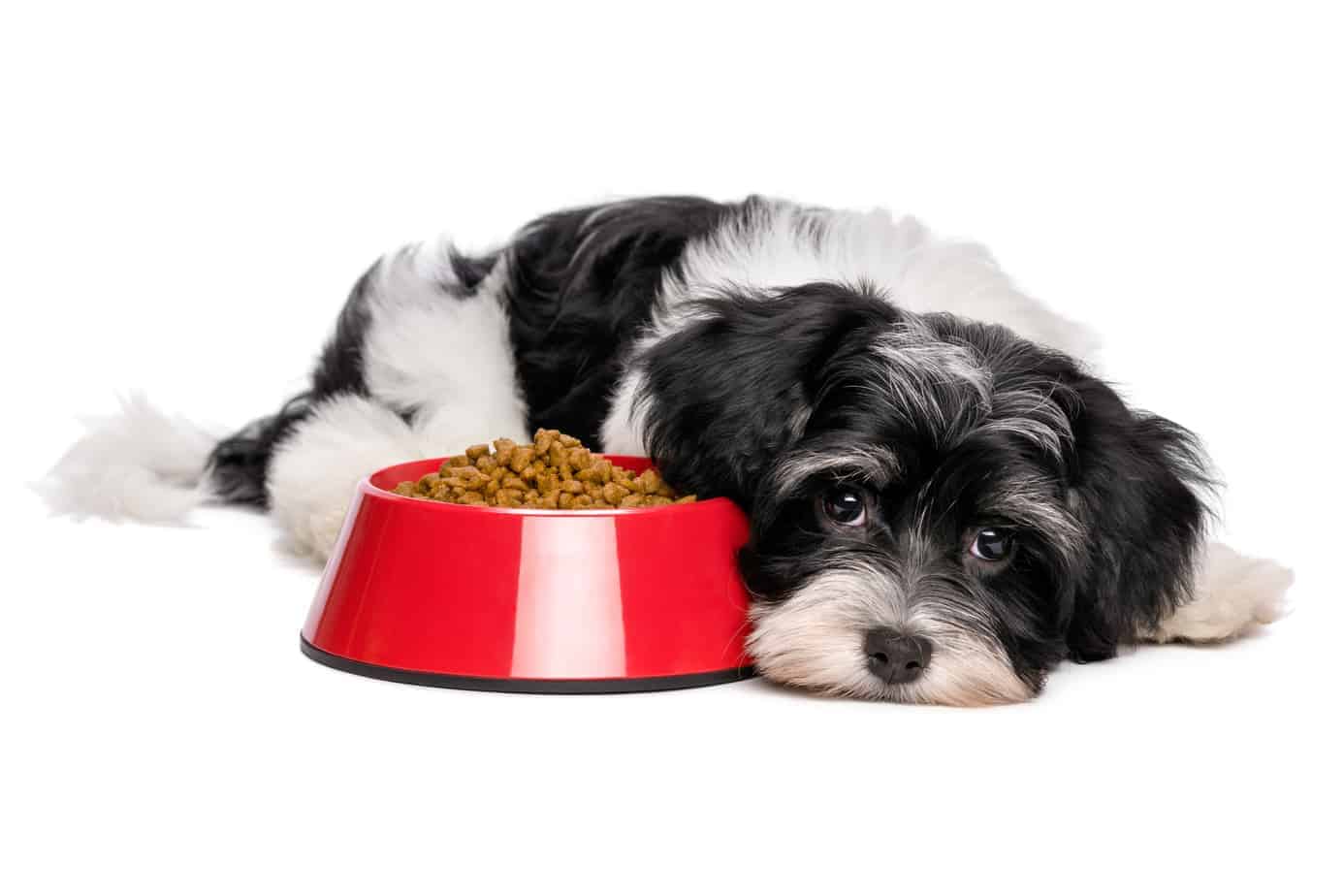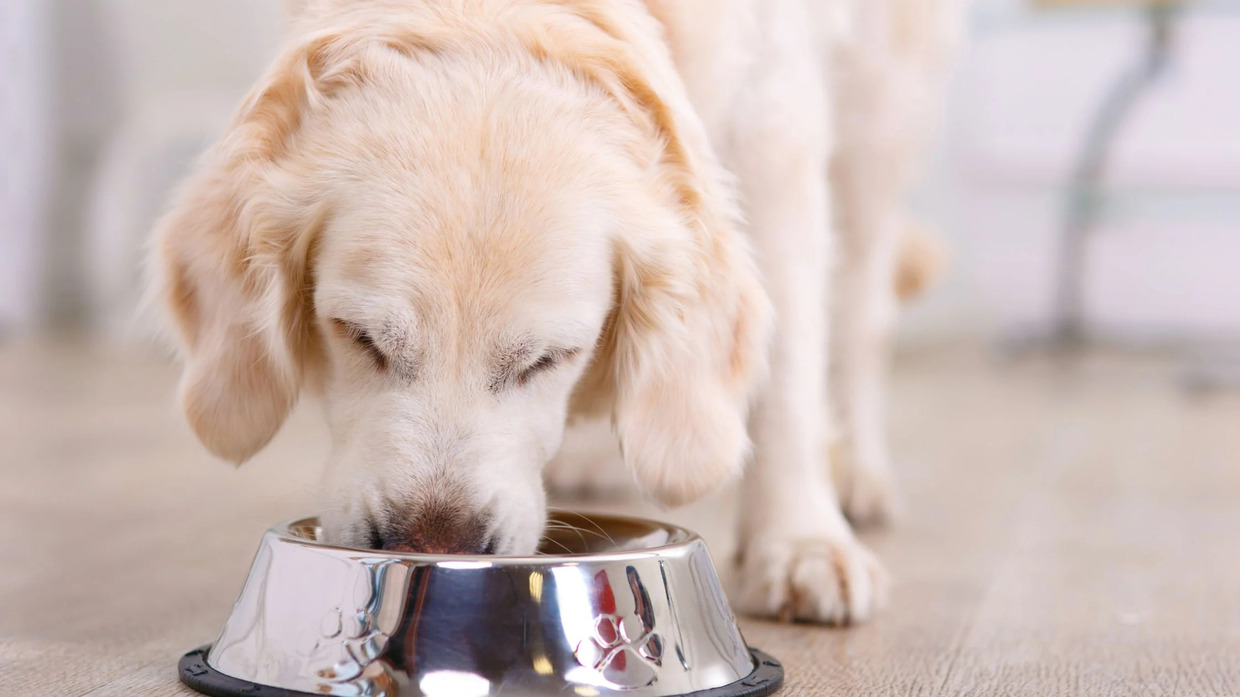Home>Health & Wellness>Nutrition & Diet>How To Supplement Taurine In A Dog’s Diet


Nutrition & Diet
How To Supplement Taurine In A Dog’s Diet
Published: January 27, 2024
Learn how to supplement taurine in your dog's diet to ensure proper nutrition and diet. Discover the best practices for incorporating taurine into your pet's meals.
(Many of the links in this article redirect to a specific reviewed product. Your purchase of these products through affiliate links helps to generate commission for Pawsomeoldies.com, at no extra cost. Learn more)
Table of Contents
Introduction
Taurine is an essential amino acid that plays a crucial role in maintaining the overall health and well-being of dogs. As a devoted pet parent, ensuring that your furry companion receives adequate nutrition is paramount, and understanding the significance of taurine in your dog's diet is a vital aspect of responsible pet care.
In this comprehensive guide, we will delve into the importance of taurine for dogs, the signs of taurine deficiency, and the best methods for supplementing taurine in your dog's diet. By the end of this article, you will have a clear understanding of how to optimize your dog's taurine intake, promoting their longevity and vitality.
Let's embark on this enlightening journey to unravel the mysteries of taurine and its indispensable role in supporting your canine companion's health and happiness.
What is Taurine and Why is it Important for Dogs?
Taurine is a type of amino acid that is considered essential for dogs. Unlike other amino acids, taurine is not used to build proteins. Instead, it plays a crucial role in various physiological functions within a dog's body. This amino acid is primarily found in the heart, muscles, and central nervous system, where it contributes to the proper functioning of these vital organs.
One of the key reasons why taurine is important for dogs is its role in supporting cardiac function. Taurine aids in maintaining the normal contractions of the heart muscle, thereby promoting a healthy cardiovascular system. Additionally, it helps regulate the balance of minerals, such as calcium and potassium, within the heart cells, which is essential for sustaining a steady heartbeat.
Furthermore, taurine is involved in the development and function of the eyes. It is a crucial component of the retina, where it supports vision and overall eye health in dogs. Adequate levels of taurine contribute to the maintenance of optimal vision and may help prevent certain eye-related conditions.
Moreover, taurine is known for its antioxidant properties, which play a role in protecting cells from damage caused by free radicals. This is particularly important for dogs, as it helps support their overall immune function and may contribute to a reduced risk of certain chronic diseases.
In addition to its specific physiological roles, taurine also supports the overall well-being of dogs by promoting healthy digestion and aiding in the regulation of energy metabolism. These functions are essential for maintaining a dog's vitality and ensuring that their body operates optimally.
Given the multifaceted importance of taurine for dogs, ensuring that your canine companion receives an adequate amount of this amino acid is crucial for their overall health and longevity. Understanding the significance of taurine in your dog's diet empowers you to make informed decisions regarding their nutrition, ultimately contributing to their well-being and quality of life.
Signs of Taurine Deficiency in Dogs
Recognizing the signs of taurine deficiency in dogs is crucial for proactive intervention and ensuring the overall well-being of your furry companion. Taurine plays a pivotal role in various physiological functions within a dog's body, and a deficiency can manifest in several noticeable ways. Understanding these signs empowers pet parents to take timely action and seek appropriate veterinary guidance.
One of the primary indicators of taurine deficiency in dogs is cardiac-related issues. Dogs with insufficient taurine levels may exhibit symptoms such as an irregular heartbeat, weak pulse, or reduced exercise tolerance. Additionally, they might display signs of fatigue or lethargy, which can be attributed to the compromised function of the heart muscle due to taurine deficiency.
Furthermore, taurine deficiency can impact a dog's ocular health, leading to potential vision-related issues. Dogs may experience retinal degeneration, which can manifest as decreased visual acuity or changes in their ability to perceive light. These ocular symptoms can significantly affect a dog's quality of life and highlight the importance of addressing taurine deficiency promptly.
In some cases, taurine deficiency may also contribute to digestive disturbances in dogs. Gastrointestinal issues such as reduced appetite, vomiting, or diarrhea can be indicative of an underlying taurine insufficiency. These symptoms may affect a dog's nutritional intake and overall digestive comfort, underscoring the far-reaching implications of taurine deficiency on their health.
Additionally, coat and skin problems can serve as external manifestations of taurine deficiency in dogs. A lack of taurine may lead to dull, brittle fur, and skin issues such as flakiness or irritation. Observing changes in the quality of a dog's coat and skin can provide valuable insights into their nutritional status and prompt further investigation into potential taurine deficiency.
It is important to note that while these signs can indicate taurine deficiency, they may also be associated with other health conditions. Therefore, consulting a veterinarian for a comprehensive evaluation and appropriate diagnostic tests is essential for accurate diagnosis and tailored intervention.
By being attentive to these potential signs of taurine deficiency in dogs, pet parents can actively participate in safeguarding their canine companions' health. Early recognition of these indicators enables timely intervention, potentially mitigating the impact of taurine insufficiency and promoting the overall well-being of dogs.
How to Supplement Taurine in a Dog's Diet
Supplementing taurine in a dog's diet is a proactive approach to ensuring that your canine companion receives adequate levels of this essential amino acid. There are several effective methods to incorporate taurine into your dog's nutritional regimen, each offering unique benefits and considerations.
High-Quality Commercial Dog Food
Selecting high-quality commercial dog food that is specifically formulated to meet the nutritional needs of dogs can be an efficient way to ensure adequate taurine intake. When choosing dog food, look for products that list taurine as an ingredient, indicating its deliberate inclusion to support canine health. Opt for reputable brands known for their commitment to quality and nutritional balance, as this can significantly impact the taurine content in the diet.
Taurine-Enriched Dog Food
Some dog food formulations are enriched with additional taurine to augment the amino acid content. These specialized products are designed to address specific nutritional requirements, making them a valuable option for dogs with taurine-related concerns. Consulting with a veterinarian can provide insights into whether taurine-enriched dog food is suitable for your dog's individual needs, ensuring a tailored approach to supplementation.
Taurine Supplements
In cases where dietary adjustments alone may not suffice, taurine supplements can be administered to bolster a dog's taurine levels. These supplements are available in various forms, including capsules, powders, or liquid formulations, offering flexibility in administration. It is imperative to seek professional guidance from a veterinarian to determine the appropriate dosage and form of taurine supplements for your dog, taking into account factors such as age, weight, and overall health status.
Natural Dietary Sources
Incorporating natural dietary sources rich in taurine can complement a dog's nutritional intake. Certain animal-based ingredients, such as organ meats like heart and liver, contain notable levels of taurine, presenting an opportunity to diversify a dog's diet while providing essential nutrients. Integrating these natural sources in moderation can contribute to overall taurine sufficiency, promoting a well-rounded approach to canine nutrition.
Regular Monitoring and Veterinary Consultation
Regardless of the chosen method for taurine supplementation, regular monitoring of a dog's health and well-being is essential. Veterinary consultation plays a pivotal role in assessing a dog's taurine status, guiding the selection of appropriate supplementation strategies, and evaluating the efficacy of the chosen approach. Collaborating with a veterinarian fosters a comprehensive and tailored approach to taurine supplementation, aligning with the specific needs of your dog.
By implementing these strategies, pet parents can actively participate in optimizing their dog's taurine intake, promoting holistic well-being and supporting their canine companion's overall health.
Read more: What Supplement To Give Dog For Anxiety
Recommended Taurine Supplements for Dogs
When considering taurine supplementation for dogs, it is essential to prioritize products that align with the specific nutritional needs and well-being of your canine companion. Here are some recommended taurine supplements that can be beneficial for dogs:
1. Taurine Capsules or Tablets
Taurine supplements in capsule or tablet form offer a convenient and precise method of administration. These supplements are available in varying strengths, allowing for tailored dosing based on a dog's individual requirements. When selecting taurine capsules or tablets, it is advisable to opt for products from reputable manufacturers known for their commitment to quality and safety. Additionally, consulting with a veterinarian can provide valuable insights into the appropriate dosage and frequency of administration, ensuring optimal taurine supplementation for your dog.
2. Taurine Powder
Taurine supplements in powder form provide versatility in administration, as the powder can be easily mixed into a dog's food or liquid. This form of supplementation offers flexibility in adjusting the dosage according to a dog's specific needs, making it a practical option for pet parents seeking precise control over taurine intake. It is important to select high-quality taurine powder from trusted sources to ensure the purity and efficacy of the supplement. Veterinary guidance is instrumental in determining the correct dosage and monitoring the response to taurine powder supplementation in dogs.
3. Liquid Taurine Supplements
Liquid taurine supplements offer an alternative method of taurine administration, particularly suitable for dogs with specific preferences or health considerations. The liquid form allows for easy mixing with a dog's food or liquid refreshments, facilitating seamless integration into their daily routine. When exploring liquid taurine supplements, prioritizing products with clear dosing instructions and transparent ingredient profiles is paramount. Seeking professional advice from a veterinarian can aid in selecting the most suitable liquid taurine supplement and establishing an appropriate supplementation regimen for your dog.
4. Taurine-Enriched Treats or Chews
Taurine-enriched treats or chews present a palatable and enjoyable way to supplement taurine in a dog's diet. These specialized products are designed to provide a delicious incentive for dogs while delivering targeted taurine support. When incorporating taurine-enriched treats or chews into a dog's routine, it is essential to consider the overall nutritional balance and caloric intake to prevent overconsumption. Consulting with a veterinarian can offer valuable guidance on integrating these supplements as part of a dog's daily nutritional plan, ensuring a harmonious approach to taurine supplementation.
5. Combination Supplements
Some taurine supplements are formulated as part of comprehensive canine nutritional blends, combining taurine with other essential nutrients to support overall health. These combination supplements may offer synergistic benefits, addressing multiple aspects of a dog's well-being while ensuring adequate taurine intake. When exploring combination supplements, pet parents should prioritize products that are specifically tailored to meet the unique nutritional requirements of dogs. Veterinary consultation is recommended to ascertain the suitability of combination supplements for individual dogs and to determine the most effective supplementation approach.
Incorporating these recommended taurine supplements into a dog's dietary regimen can contribute to optimizing their taurine intake, promoting holistic well-being, and supporting their overall health. Prioritizing the well-being of your canine companion through informed supplementation choices underscores the commitment to nurturing their vitality and longevity.
Conclusion
In conclusion, understanding the significance of taurine in a dog's diet is paramount for pet parents committed to ensuring the optimal health and well-being of their canine companions. Taurine, as an essential amino acid, plays a multifaceted role in supporting various physiological functions within a dog's body, encompassing cardiac health, ocular function, antioxidant protection, digestion, and energy metabolism. By recognizing the importance of taurine and its far-reaching impact on a dog's overall vitality, pet parents can actively engage in proactive measures to safeguard their furry friends' nutritional sufficiency.
The signs of taurine deficiency in dogs serve as crucial indicators for pet parents to remain vigilant and attentive to potential health concerns. Recognizing cardiac-related symptoms, ocular manifestations, digestive disturbances, and coat and skin issues can prompt timely intervention and veterinary consultation, ultimately contributing to the early detection and management of taurine insufficiency. By remaining attuned to these signs, pet parents can play an instrumental role in advocating for their dog's health and well-being.
Supplementing taurine in a dog's diet encompasses a diverse array of strategies, ranging from high-quality commercial dog food and taurine-enriched formulations to targeted taurine supplements and natural dietary sources. Each approach offers unique benefits and considerations, empowering pet parents to make informed decisions tailored to their dog's individual needs. Furthermore, regular monitoring and veterinary consultation are integral components of a comprehensive taurine supplementation plan, ensuring that the chosen strategies align with the specific requirements of each dog.
When considering taurine supplementation for dogs, prioritizing recommended taurine supplements such as capsules, powders, liquid formulations, treats, or combination supplements can contribute to optimizing a dog's taurine intake while supporting their overall well-being. By selecting high-quality products and seeking professional guidance, pet parents can navigate the realm of taurine supplementation with confidence, fostering a harmonious approach to nurturing their dog's vitality and longevity.
In essence, the journey to supplementing taurine in a dog's diet is a testament to the unwavering dedication of pet parents in prioritizing the health and happiness of their beloved canine companions. By embracing the significance of taurine and actively participating in their dog's nutritional care, pet parents exemplify a profound commitment to providing a life of vitality and wellness for their cherished furry friends.












